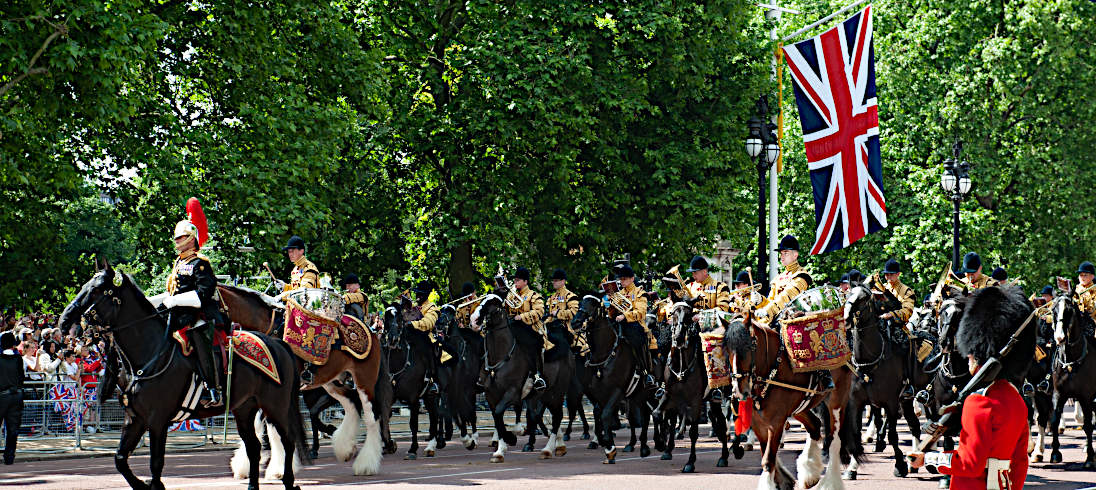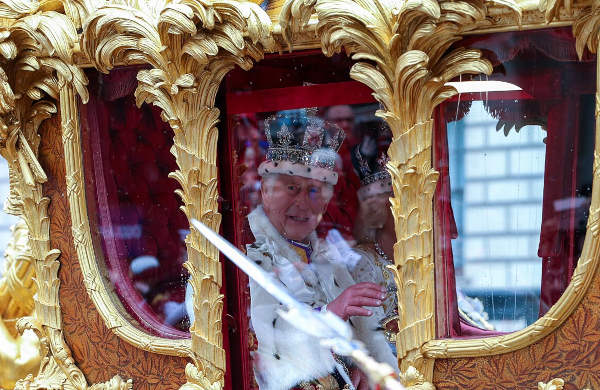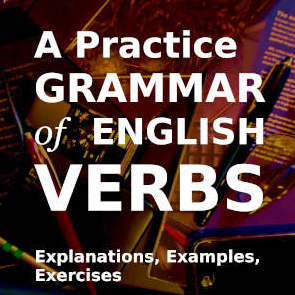
King Charles, his coronation and the future
Charles III was crowned on May 6th

After the coronation, the king went to Buckingham Palace in a golden carriage
In May 2023, King Charles III was crowned as King of England, the United Kingdom and other Commonwealth Realms. The ceremony took place in London's Westminster Abbey, where English Kings and Queens have been crowned for 1000 years or more.
King Charles sat on a throne that is more than 700 years old. He was crowned by the Archbishop of Canterbury, with the "Saint Edward's Crown", a royal crown that has been used since the year 1320, and perhaps for more than 1,000 years. His wife Camilla was crowned as Queen Camilla. She wore a more modern crown, one that was made in 1911 for Queen Mary, the wife of King George V.
About 2,000 people attended the ceremony inside the Abbey, but the event was seen live on TV by millions all over the world; although Charles's coronation lasted for two hours, it was simpler and shorter than the last coronation, that of his mother "the Queen" in 1953. Times have changed, attitudes have changed, and the British monarchy has just changed considerably.
Not all things have changed! After the ceremony in Westminster Abbey, King Charles and Queen Camilla were carried to Buckingham Palace in a golden carriage, pulled by horses, . Following another tradition, they then came out onto the balcony, to wave to the crowds below.
The Coronation was a great national day of festivities all over the UK and beyond. The festivities continued all the weekend, and into Monday when there was a special national holiday. There were flags all over the country, souvenirs and decorations in shops, monuments and public places, and street parties in cities, towns and villages.
Street parties are a popular tradition in Britain. People who live on the same street, or in the same building, bring out tables and chairs, cakes and sandwiches, tea and other drinks, and enjoy a tea party together. Anyone can organise a street party. They now happen whenever there is a big national day of celebration. Street parties do not happen every year, since there is no "national day" in Britain! Britain does not have an Independence Day like the USA, nor an Eid as in Muslim countries, nor a 14th July like France… and nobody wants to organise an outdoor street party at Christmas or for the New Year!
During the Coronation weekend, most people in Britain celebrated the Coronation, as they were happy to have a new King, but some did not. Two thirds of people in Britain are happy with the monarchy, or accept it, but there are others who want Britain to become a republic. Yet for now, republicans are in a small minority, representing just 25% of the population, according to an opinion poll made a few days after the Coronation.
What will happen next? That will depend very much on King Charles. He has said that he wants to modernise the British monarchy and make it more relevant to the 21st century. If he succeeds, the monarchy may continue for many years to come. If he fails, who knows what will happen?
►►► Read more about King Charles: Britain's new king (with audio)
Word guide
Crown -
an official
hat used by monarchs - realm: kingdom -
throne - a seat for kings, as in "Game
of Thrones" - bishop, archbishop : the top people in
a church -
attend: be present at - attitude: the
way people think about things -
considerably - a lot, in a big way - carriage: a
vehicle without a
motor - wave - make a sign with the hands and arms
- enjoy : have a
good time - Muslim - Islamic - monarch: a
king or a queen - a
minority: (much) less than half - two thirds:
67% - depend on: be a
result of - relevant to: appropriate for, suitable
for - fail: the
opposite of succeed.
Return to Linguapress site index
Printing: Optimized for printing
Copyright © Linguapress. Do not copy this document to any other website
Copying permitted for personal study, or by teachers for use with their students
Student Worksheet
1. Interactive multiple-choice exercise. Can be completed on screen or on paper :
Here is an extract from the article. Choose the correct answer from the options given in each case. Click the down arrow v to show the options, then select the one that you think is right. 😉 Try to do this exercise without looking back to the articleTo save your answers, take a screenshot when you have finished doing the exercise.
the Coronation weekend, people in Britain celebrated the Coronation, as they were happy a new King; but some . Two of people in Britain are happy with the monarchy, or accept it, but there are who want Britain become a republic. Yet for now republicans are in a small minority, representing just 25% of the population, an opinion poll made a few days after the Coronation.
2. Anagram puzzle
Here are anagrams made from words used in the article. What were the original words ? Combine the letters of each anagram into a single original word2. Her apps
3. Dry bacon lies
4. Onion actor
5. Ed wins cash
6. Election bar
7. Pub relic
8. Mini Tony
For Teachers
Grammar:
1. Verb tenses, past.
When it was first posted, this text was about the future..... not just the future of the British monarchy, but about expressing the future, in grammatical terms. The event has now pased, and like most reports, the text now refers to the event using past tenses.
Paragraphs 2 and 3 have some classic uses of the present perfect
2. Negation
Paragraphs 6 and 7 have half a dozen examples of different types of negation in English. It is iportant to show how negation can be applied in different ways, not just by adding not to a verb, but alternatively by adding no to a noun, uing neither or nor, or using a negative word such as nobody. These different types of negation are explored in the multiple choice exercise above.
The multiple choice exercise
Several boxes require students to select the correct negative structure.
Note that in box 4 of the first paragraph, the only acceptable answer is nor. Neither can only introduce the first element in a list, not the second.
In the second box of the second paragraph, the choices with of are not possible since we cannot say of people.
In the sixth box, only one of the modal verbs is possible.
The anagrams
The purpose of an exercise like this is not so much to find the answers, as to make students look attentively for the answers, which involves a word by word approach to the text. They also need to pay attention to spelling.




